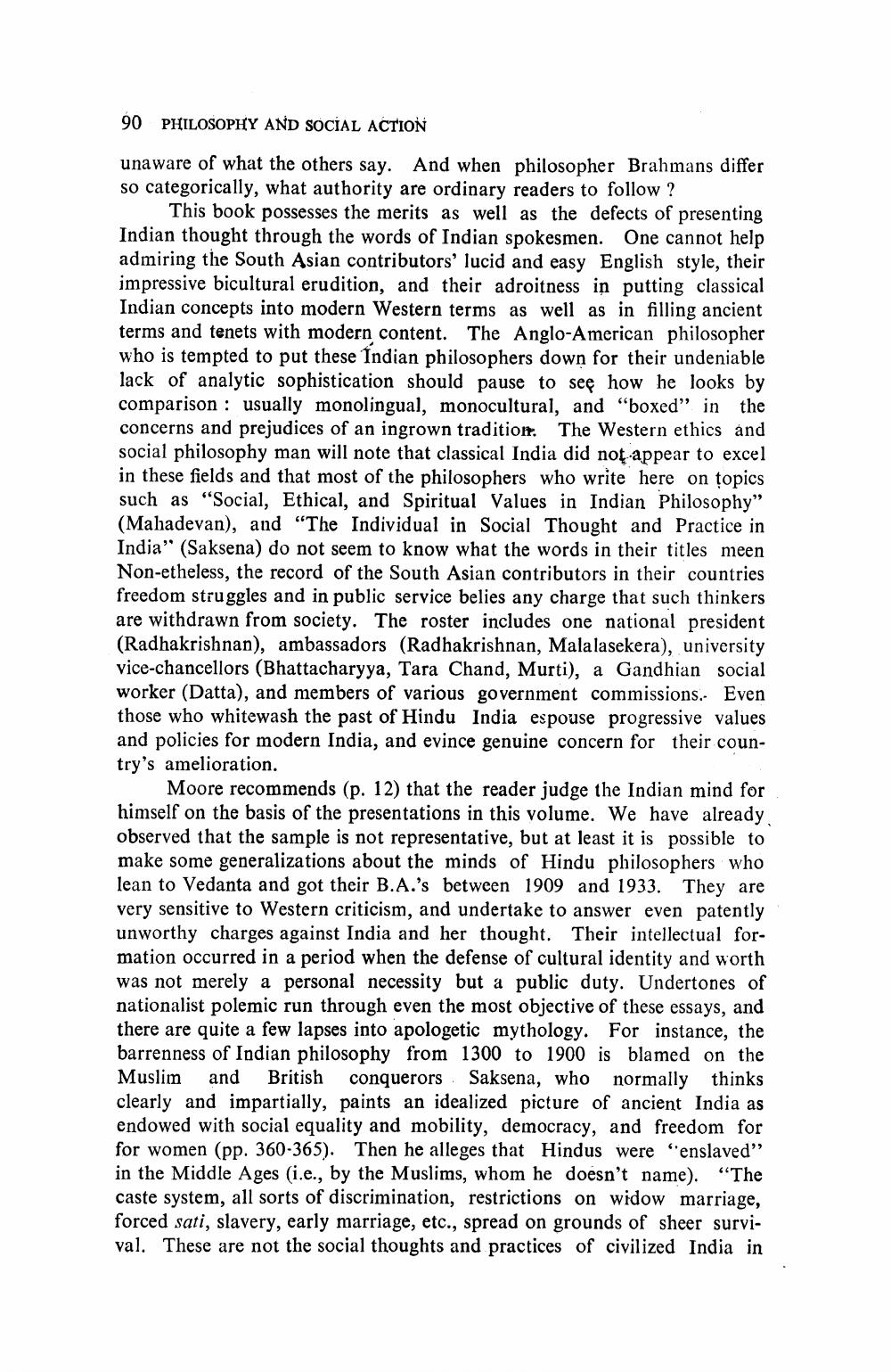Book Title: Indian Mind Essentials Of Indian Philosophy And Culture Author(s): Richard H Robinson Publisher: Richard H Robinson View full book textPage 3
________________ 90 PHILOSOPHY AND SOCIAL ACTION unaware of what the others say. And when philosopher Brahmans differ so categorically, what authority are ordinary readers to follow ? This book possesses the merits as well as the defects of presenting Indian thought through the words of Indian spokesmen. One cannot help admiring the South Asian contributors' lucid and easy English style, their impressive bicultural erudition, and their adroitness in putting classical Indian concepts into modern Western terms as well as in filling ancient terms and tenets with modern content. The Anglo-American philosopher who is tempted to put these Indian philosophers down for their undeniable lack of analytic sophistication should pause to see how he looks by comparison : usually monolingual, monocultural, and "boxed” in the concerns and prejudices of an ingrown tradition. The Western ethics and social philosophy man will note that classical India did not appear to excel in these fields and that most of the philosophers who write here on topics such as “Social, Ethical, and Spiritual Values in Indian Philosophy" (Mahadevan), and "The Individual in Social Thought and Practice in India" (Saksena) do not seem to know what the words in their titles meen Non-etheless, the record of the South Asian contributors in their countries freedom struggles and in public service belies any charge that such thinkers are withdrawn from society. The roster includes one national president (Radhakrishnan), ambassadors (Radhakrishnan, Malalasekera), university vice-chancellors (Bhattacharyya, Tara Chand, Murti), a Gandhian social worker (Datta), and members of various government commissions. Even those who whitewash the past of Hindu India espouse progressive values and policies for modern India, and evince genuine concern for their country's amelioration. Moore recommends (p. 12) that the reader judge the Indian mind for himself on the basis of the presentations in this volume. We have already. observed that the sample is not representative, but at least it is possible to make some generalizations about the minds of Hindu philosophers who lean to Vedanta and got their B.A.'s between 1909 and 1933. They are very sensitive to Western criticism, and undertake to answer even patently unworthy charges against India and her thought. Their intellectual formation occurred in a period when the defense of cultural identity and worth was not merely a personal necessity but a public duty. Undertones of nationalist polemic run through even the most objective of these essays, and there are quite a few lapses into apologetic mythology. For instance, the barrenness of Indian philosophy from 1300 to 1900 is blamed on the Muslim and British conquerors Saksena, who normally thinks clearly and impartially, paints an idealized picture of ancient India as endowed with social equality and mobility, democracy, and freedom for for women (pp. 360-365). Then he alleges that Hindus were "enslaved" in the Middle Ages (i.e., by the Muslims, whom he doesn't name). "The caste system, all sorts of discrimination, restrictions on widow marriage, forced sati, slavery, early marriage, etc., spread on grounds of sheer survival. These are not the social thoughts and practices of civilized India inPage Navigation
1 2 3 4 5 6 7 8 9 10 11
